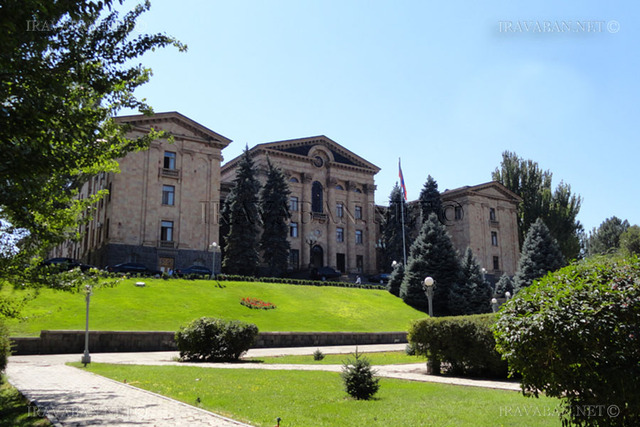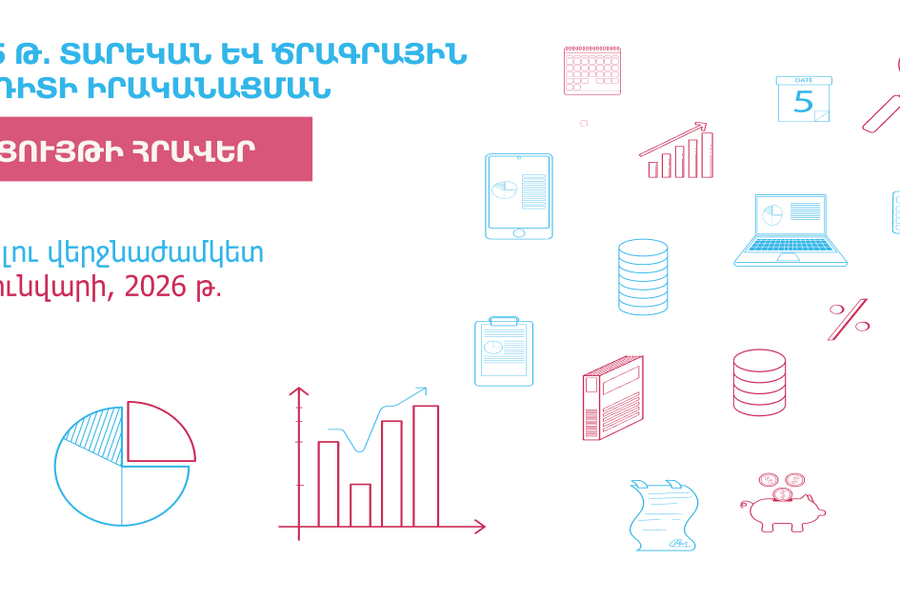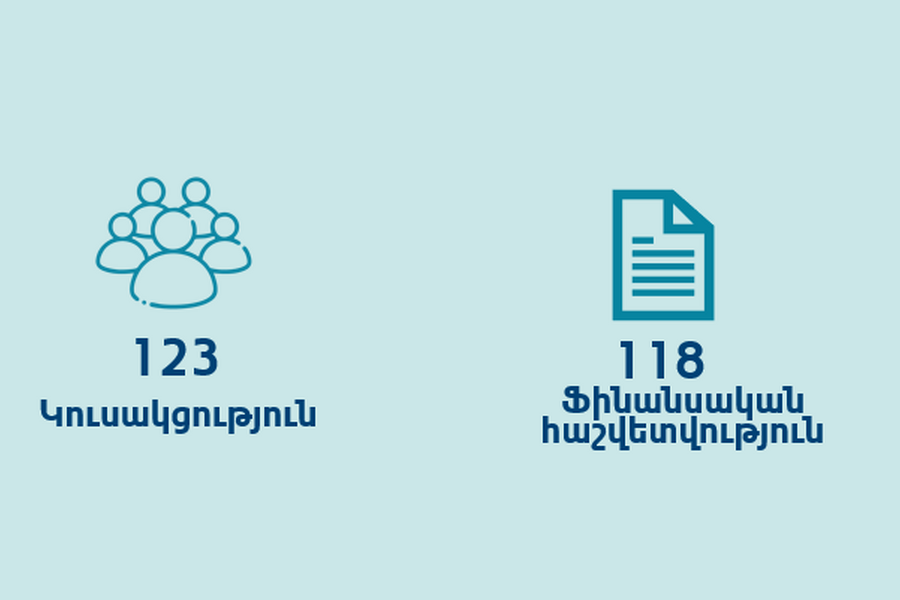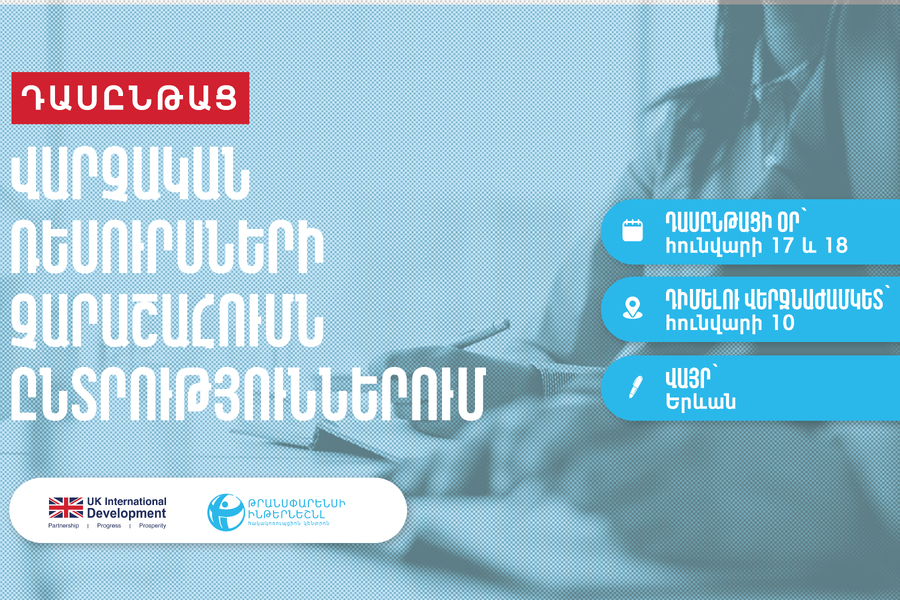Excuses to Avoid Passing Amendments to the Electoral Code Signal a Lack of Political Will
STATEMENT
On March 18, 2021, Armenian Prime Minister Nikol Pashinyan announced that, following talks with the parliamentary opposition party leaders, they had reached an agreement to hold an early parliamentary election on June 20, 2021.
Although the announcement does not mention the Electoral Code, opinions have circulated that any amendments to the Electoral Code require a buffer period of six months before they are applied to an election, and that the early election should be administered under the existing unamended legislation that was passed in 2016. At the same time, such sources suggest that the amendments require a consensus between all the parliamentary factions.
These two points derive from the Code of Good Practice in Electoral Matters, published by the Venice Commission of the Council of Europe. However, they are being disingenuously mentioned without providing adequate context. Thus, it is important to note the following mitigating factors:
- The proposed timeline for the amendments to the Electoral Code is necessary to ensure the stability of the electoral legislation, the predictability of those changes and to prepare to conduct elections under those regulations. It is important to recall that fundamental changes to the Electoral Code were identified as a priority in 2018 by a wide segment of society, following which political discussions began immediately in the summer of 2018. These discussions led to mutual agreements between political parties and attracted 62 votes in favor and only 2 against, but ultimately failed to pass into law ahead of the December 2018 election because not enough MPs were present at the vote. The proposed amendments to the Electoral Code and related laws, in their turn, were presented in August 2020 and adapted through inclusive in-person and on-line public consultations. In addition, the amendments foresee a staged implementation, where the most fundamental and political changes are applied immediately, and those that require more time to implement come into force at a later date. Finally, the Republic of Armenia is currently in a deep political crisis; in order to maintain stability, transparent electoral practices must take precedence over voluntary procedural guidelines. Such a precedent was established in 2018, when amendments to the Criminal Code relating to electoral violations were passed on September 7, immediately ahead of the September 23 early election for Yerevan City Council. Similarly, the 2018 Electoral Code amendments were put to a vote in late October, in very close proximity to the December 9 early parliamentary election of that year. Although these latter amendments did not pass, the acceptability of presenting them ahead of an election was acknowledged by the Venice Commission due to the extenuating circumstances.
- With regard to the need for consensus between the parliamentary factions, it is important to note that the disagreement between the parties is due to their own political calculations. Some feel that they are able to win through the free articulation of the people’s will, while others feel they can gain advantage through vote bribes, criminal intimidation and the abuse of administrative resources. The current legislation provides favorable conditions for the latter set to gain power. Attitudes toward the amendments to the Electoral Code must be viewed within this context. The reality is that there is a wide consensus among the Armenian public that changes to the Electoral Code are necessary. The following points serve as evidence for this assertion:
- During the 2018 street protests, improvements to electoral legislation was a demand from wide segments of the public and civil society actors;
- The most important elements of the changes (ex. electoral system, minimum threshold, distribution of mandates, and timelines for coalition negotiations) were already agreed to in 2018 by the Prosperous Armenia and Bright Armenia parties.
- The most recent representative national poll conducted by the International Republican Institute (IRI) in Armenia showed that 74 percent of respondents believed it was important to amend the Electoral Code;[1]
- Over 30 organizations and political activists have joined the call to see through the amendments to the Electoral Code;
- Extraparliamentary parties that prioritize idea-based politics have spoken out in favor of conducting the early election under the amended Electoral Code.[2]
We thus reaffirm the announcement released by a number of civil society organizations on March 16, 2021, and point out that the passage or not of the amendments to the Electoral Code pivots on the political will of the governing party, the accountability of the state to its people, and their commitment to democratic values.
The announcement is open. To join the list of signatories, please fill out the details of your civil society organization here.
“Akanates” (Eyewitness) Observation Mission
Transparency International Anticorruption Center
Journalists' Club "Asparez" NGO
Law Development and Protection Foundation
"Restart" Scientific-Educational Foundation
“Independent Observer” Public Alliance
Helsinki Citizens' Assembly - Vanadzor
Union of Informed Citizens
Direct Democracy NGO
For Equal Rights Educational Center NGO
“Free Citizen” Civic Initiative Support Center NGO
[1] https://www.iri.org/sites/default/files/final_for_publication_armenia_electoral_reform_march_8_2021.pdf#page=43
[2] http://www.anc.am/?p=3092; https://a1plus.am/hy/article/396386






